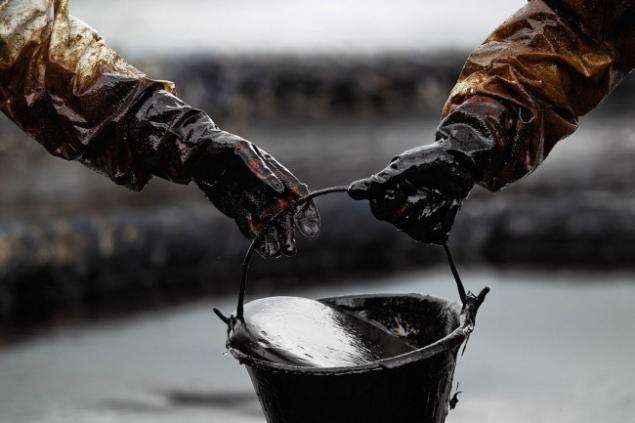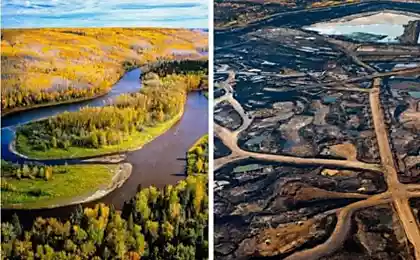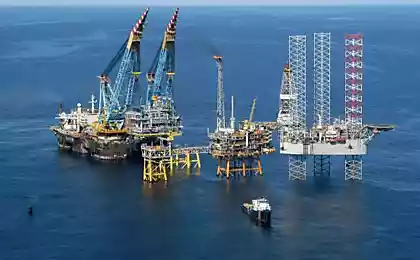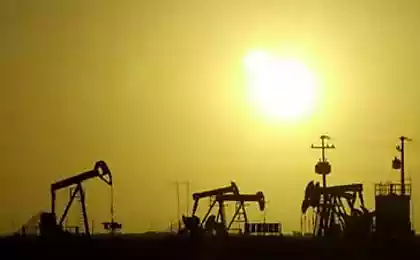560
The world, experts say, is awash in oil

Every moment the world burns as much fuel derived from oil that they could fill four Olympic-sized pool. Global oil consumption has never been higher — and it continues to grow.
However, the price for a barrel of oil has fallen by almost half over the past six months because the world, experts say, is awash in oil. Where did it come from?
Earth has been accumulating oil and natural gas for billions of years. People suck and Refine oil is already 156 years, since the advent of the oil industry in Pennsylvania in 1859.
Thus, even when oil prices spiked earlier this decade amid worries that oil will soon run low, scientists and oil companies knew that quite a lot. The question was not so much how much oil and gas left in the earth's crust, but whether we will be able to get them to make money. This is not geological, but rather economic and technical issue. In fact, much more oil than could be removed without economic losses with current technologies.
In any case, more than enough to sustain record high consumption of 345 million barrels a day. One barrel is 159 litres, so we consumed 14 billion litres of oil per day. It's as if every person on the planet spent two liters of oil per day.
Since 1980, the world burned about 140 trillion liters of oil. It is slightly more liquid than is contained in lake Tahoe, the eleventh on the depth of the lake in the world. That's enough to drown Moscow within the ring road with a layer of oil several gallons deep.
Although it seems that a lot of this, keep in mind that lake Tahoe is a tiny dot on the world map. There is sedimentary rock that holds old organic matter under huge layer of the earth's crust. In some places, this rock reaches a thickness of 10 kilometers. Only a small part of it contains oil and gas, but the scale of the Earth possible reserves of these resources is enormous.
It's not particularly happy climatologists. Okay, we burned a certain amount of oil and gas — but we want to continue to burn them, and this can lead to dangerous and possibly catastrophic changes in the Earth's climate.
And we find more oil and gas than we use. For example, since 1980 the volume was found, but not yet consumed oil, has doubled. Proven world oil reserves are now 1.7 trillion barrels of oil (in 1980 was 683 billion bbl), according to the statistical reports of energy drinks.
Technological breakthroughs are, as a rule, cyclic and pushed high prices. The price of oil began to rise rapidly in the early and mid-2000-ies, encouraging oil companies to take risks, using new technology to search for hard-to-reach oil.
In 2007 and 2008, they have not yet found the true ways, and the oil consumption increased rapidly, so the price of oil rose to $ 150 per barrel.
Today, they not only caught up with the growth in demand, but surpassed it. The big technological breakthrough was also the opportunity to develop shale layers and other rich oil and gas rock.
In the past, oil drillers had searched for pools of oil and gas that have accumulated over thousands of years under the influence of gravity and pressure of the rocks, known as "ladders". Now they can get access directly to the stone that holds billions of barrels not the most accessible oil, but still within reach.
Production growth from these and other sources, including canadian oil Sands; the oil found under the kilometer-long layer of salt in deep waters of Brazil; the huge fields of Iraq, have all contributed to the advance of the demand.
In the end, the price of oil dropped to 50 dollars for barrel and continues to fall, although the last four years, the trades were closed within 100 dollars per barrel. In many cases this price is less than the cost of production which suggests that production is likely to gradually fall until the demand again would not catch it. Most likely, oil prices will bounce back. But how? New technology has changed the equation. But nobody knows, does this change the equation again.
Source: hi-news.ru
In Europe impose control over the energy consumption of Wi-Fi routers and other appliances
Dishwasher, integrated sink























